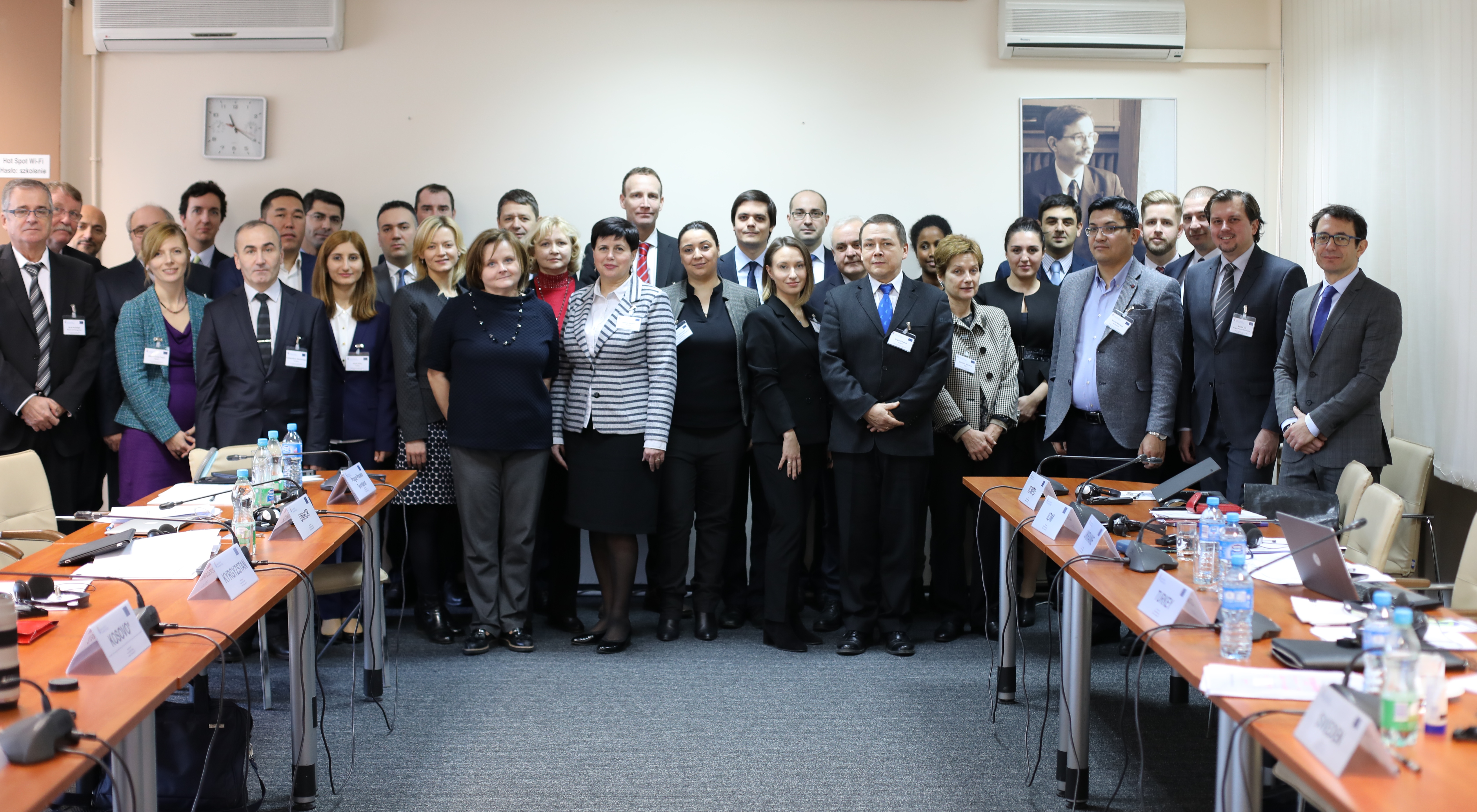The Prague Process Senior Officials’ Meeting (SOM) took place in Warsaw on 12 December 2017, gathering 33 participants from 21 states, as well as ICMPD, IOM and UNHCR. Several registered participants, including representatives from Albania, Czech Republic, Estonia, Hungary, Latvia, ICMPD and the European Commission could not attend the meeting due to cancelled flights. In spite of the unforeseen absence of several speakers, most of the original agenda could be maintained thanks to securing some interventions per Skype and others shared beforehand in written in order to be delivered by the Prague Process Secretariat.
The main objective of this SOM was twofold: To inform participating states on all relevant aspects with regards to the future implementation of the Prague Process in order for them to endorse the future structure and work plan; and to update participating states on the state of play with regards to the Global Compacts for Safe, Orderly and Regular Migration as well as on Refugees and collect their respective inputs and national policy priorities.
The messages on behalf of the European Commission, ICMPD, Poland and the Prague Process Secretariat addressed the key transformation features which will be driving the Process in 2018-2020.
EC being the main donor of the process found a solution to sustain the main activities of the Process and its accumulated expertise for the coming three years. This new action will form part of the Mobility Partnership Facility and comprise of three main pillars: 1) The Dialogue function, being one of the key elements that would ensure that all participating counties and partners have a possibility to express their views and opinions; 2) The Migration Observatory; and 3) The Training Academy, as envisaged by the Bratislava Ministerial Declaration of 2016. The new the phase called “Prague Process: Dialogue, Analysis and Training in Action” (PP DATA) should commence as of January 2018.
Poland reminded participants of its resignation from the post of the Prague Process leader and presented the new management structure - the Strategic Group - inspired by the assessment of other ongoing migration dialogues, operating under a collective leadership rather than one single Leading State. The possibility to further adjust competences and composition of the SG according to the vision of participating states was underlined.
During the feedback session on the implementation of the third phase of the Prague Process, all participating states expressed their support and agreement to the presented structure, concept and activities. Some states expressed their readiness to provide for experts or host events. Various states reiterated on the need to avoid duplication with other ongoing initiatives and institutions across the region, including on the Global Compacts. Several non-EU states expressed the need to address the issues of labour migration as well as migration and development. The use of new technologies and innovative approaches was welcomed by a number of representatives. It was also clarified that there will be no obligation introduced for financial contributions on behalf of participating states.
The second working session focused on the Global Compact on Safe, Regular and Orderly Migration (GCM) and the Global Compact on Refugees, which were presented by IOM and UNHCR, both of which play an important role in the preparation of the Compacts. The participants of the SOM were then invited to share those national migration policy priorities, which they would like to see addressed by the two Global Compacts. Several non-EU states elaborated on the key significance of the migration and development nexus, as well as the protection of migrant workers and fight against trafficking, xenophobia and discrimination. Reintegration of returned nationals was another important common challenge. The need for stronger international cooperation was a common denominator among all participants. Several EU MS stated that they would foremost like to see the fight against irregular migration and human smuggling as well as the respective root causes and drivers addressed by the Global Compacts. The need for regular migration channels, decent work and the protection of human rights were equally highlighted in this context. Receiving countries also underlined the significance of efficient readmission, return and reintegration policies.
The Prague Process, being an inter-governmental dialogue gathering 50 countries, is well placed to contribute to the global initiatives and their implementation. The future of the Prague Process depends on the level of activity and involvement of its participating states and the recent structural changes are timely and in favour of the evolution of the platform.

